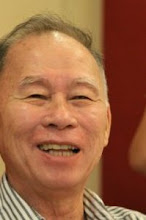Things I Learned from the 2013 Elections
2 things: 1. Political
dynasties need to be legally demolished.
2. The
electorate has to be uniformly informed, if not educated.
These are the simplified extremes of what is wrong with our
country. Fortunately, I believe our new set of legislators are made fully aware
of the problems and should be patriotic and smart enough to craft laws that
will bridge the chasm between the above extreme national obstacles – the cause
and effect. The bottom line consequence of such laws is poverty alleviation.
I used to hear my Jesuit teachers
say: “Your greatest virtue is your greatest vice.”
Admittedly, Pinoys are clannish. The family is what keeps us
together in good and bad weather. What we need to realize, however, is that
clannishness becomes evil when our clan starts to bully the next clan. In
contrast our Philippine tourism is being pushed effectively through resourceful
family ventures. The same is true with political dynasties. Per se, political
dynasties are not evil. But they can be put to positive use.
Traditionally, winning
candidates go back to doing everything they can to protect their clan’s
interests and practically nothing that could benefit the rest of the people. The
enlightened legislators have the opportunity to change this practice.
Right now, there are 178 clans
ruling 73 of the 80 provinces in the Philippines. The officials were voted into
office by the same people who continue to complain about their wretched lives.
Even a convicted plunderer can run again and again for public office and win.
Nancy Binay used her
father’s popularity to win the election. Some of her critics are actually too
harsh on her when they should be directing their anger at the voters. Nancy
Binay or even Grace Poe would not even think twice about running if they knew that
people voted with their heads. But they knew that their popular family names would
be enough for them to win. What they were doing may be unethical but they find
solace in the fact that it was the people who wanted them to win.
The
government will therefore remain under the control of the traditional political
parties, where the same elites who control the gains of our surging economic
resources belong, while the masa remain destitute willing to sell their
votes to the highest bidder. Hence, poverty linked to lack of education is the
culprit.
There
is no magic formula for addressing the country’s perennial economic challenges.
The government has tried very hard to address extreme poverty, namely through the expansion of the Conditional
Cash Transfer (CCT) scheme, which
provides financial benefits to indigent sectors in exchange for
performance-based improvements in crucial areas such as education. It takes
years, if not decades, to reverse the impact of previous government’s counter-productive policies.
But
this should not be a reason for complacency and obstinately sticking to an
economic paradigm, which sustains boom among the very few rich, provides the
motivation for the middle class to migrate but provides limited opportunities
for the greater number of unemployed and poor.
The
answer to the country’s continuing socio-economic challenges is at the doorstep
of our new legislators. There is no shortage of innovative suggestions from
media, bloggers and the private sector on better ways to allow the fruits of
the surging economy to filter faster from the 10% rich to the struggling 90%.
The
conductor should be ready to wield his baton in front of legislative orchestra.



